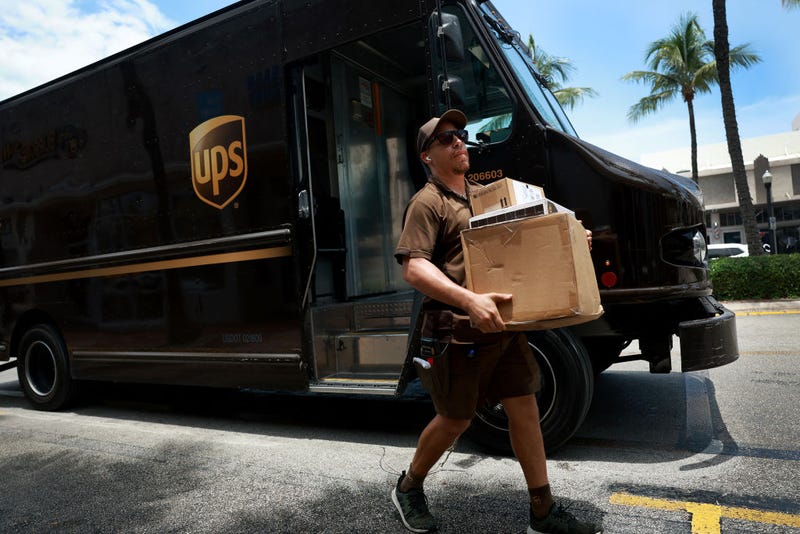
Another massive strike could soon rock the nation as the Teamsters Union and UPS are drawing closer to their August contract negotiation deadline, meaning if an agreement isn’t met by then, your packages could soon take some time to be delivered.
In June, 340,000 UPS workers voted to authorize an Aug. 1 strike should negotiations between the two parties fail. If a strike does happen, the repercussions could be massive, as experts have shared that the slack would be too much for other shipping companies to pick up.
“Unfortunately, there is no other parcel service company that could pick up the slack from UPS going on strike,” Patrick Penfield, who directs the Supply Chain Executive Management Program at Syracuse University, said last month while speaking with KNX Radio. “What would happen is we would have late deliveries, people would have trouble trying to ship products, it would just be chaos throughout the whole United States domestic market.”
The strike would be one of the largest the nation has ever seen, according to William Gould, Professor of Law, Emeritus at Stanford, who spoke with KCBS Radio about the strike.
“This will be the largest strike in terms of the number of employees involved in half a century and the largest involving one employer altogether,” Gould said.
Gould also shared that having packages shipped late isn’t the only consequence of the strike happening, as he warns it could undo everything the country has achieved in the past two years in restoring the supply chain and lowering prices following the pandemic.
“The economy, and supply chains, will be disrupted. Some of the gains we’ve made in the wake of the pandemic and the inflation that ensued could be dissipated, could be lost,” Gould shared. “So the problems for the economy could be considerable.”
When looking at the numbers, it makes sense as the nation would be losing one of its four main parcel delivery services — USPS, FedEx, Amazon, and UPS. The slack being left for the other three would be overwhelming, Penfield shared.
“You’re talking roughly 18 million packages a day,” Penfield said.
According to the Teamsters, the major outstanding issue is pay for part-time UPS workers, who account for nearly 60% of the company’s employee base.
“The number one issue, I would say, involving labor in the American economy today is the marginalization of workers and the ability to compensate these part-time workers,” Gould said.
The company shared it’s currently starting part-time employees at $16.20 an hour, but the average part-time worker makes $20 after 30 days on the job. They also receive the same health care and pension benefits as full-time workers.
Other terms the Teamsters are fighting for include rolling back overtime, additional full-time workers, and mandating air conditioning in all UPS trucks.
When it comes to whether or not they could still reach an agreement, Gould says the scales seem to be leaning in favor of an agreement, especially after they were able to agree on several “sticky” terms that many thought would be more challenging.
“There are a lot of dynamics involved that argue for their ability to reach an agreement,” Gould said.


